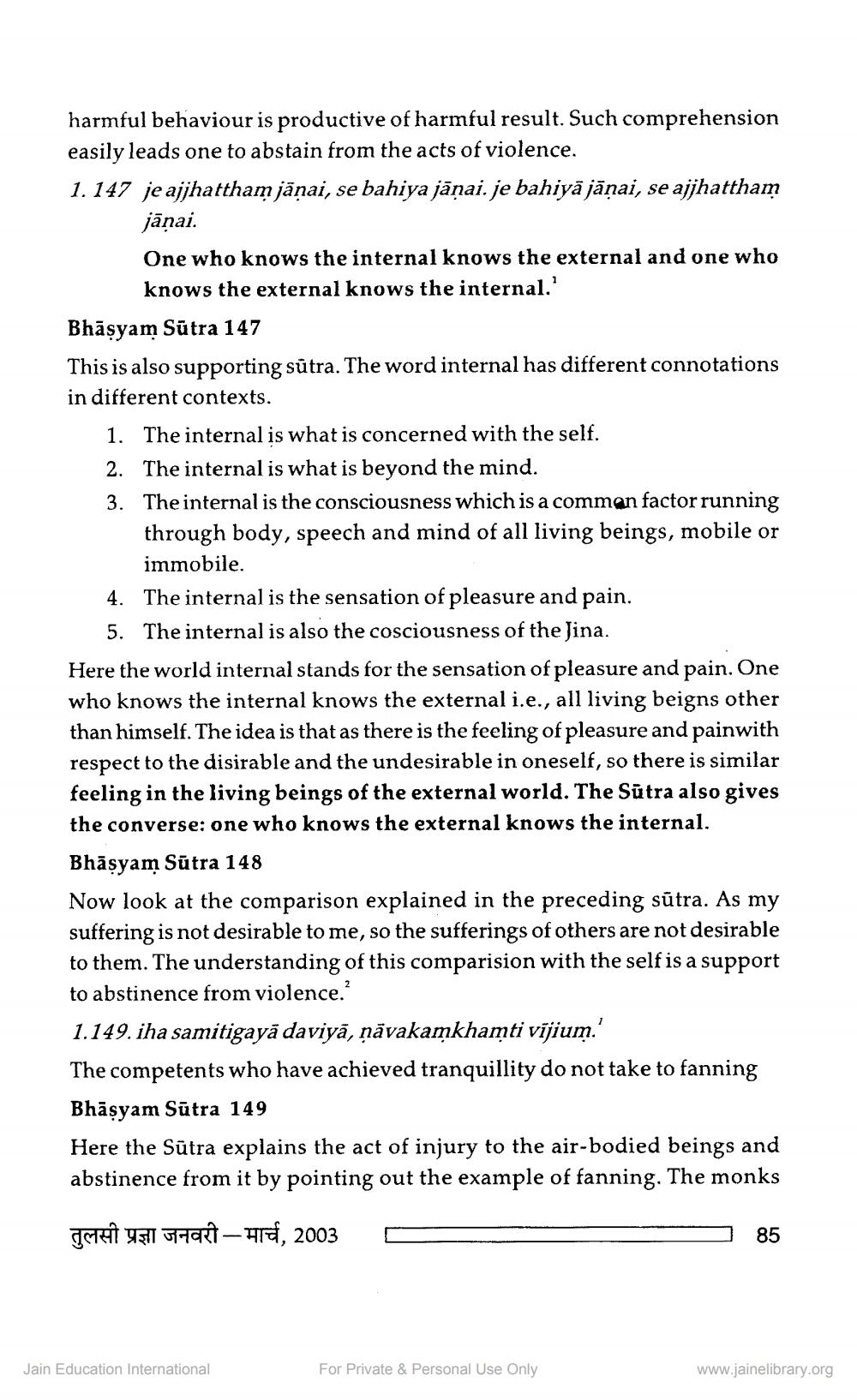________________
harmful behaviour is productive of harmful result. Such comprehension easily leads one to abstain from the acts of violence.
1.147 je ajjhattham jāṇai, se bahiya jāṇai. je bahiyā jāṇai, se ajjhattham
jāṇai.
One who knows the internal knows the external and one who knows the external knows the internal.'
Bhāsyam Sūtra 147
This is also supporting sutra. The word internal has different connotations in different contexts.
1. The internal is what is concerned with the self.
2. The internal is what is beyond the mind.
3. The internal is the consciousness which is a comman factor running through body, speech and mind of all living beings, mobile or immobile.
4. The internal is the sensation of pleasure and pain.
5. The internal is also the cosciousness of the Jina.
Here the world internal stands for the sensation of pleasure and pain. One who knows the internal knows the external i.e., all living beigns other than himself. The idea is that as there is the feeling of pleasure and painwith respect to the disirable and the undesirable in oneself, so there is similar feeling in the living beings of the external world. The Sutra also gives the converse: one who knows the external knows the internal.
Bhāṣyam Sutra 148
Now look at the comparison explained in the preceding sūtra. As my suffering is not desirable to me, so the sufferings of others are not desirable to them. The understanding of this comparision with the self is a support to abstinence from violence.2
1.149. iha samitigayā daviyā, ṇāvakamkhamti vījium.'
The competents who have achieved tranquillity do not take to fanning Bhāsyam Sūtra 149
Here the Sutra explains the act of injury to the air-bodied beings and abstinence from it by pointing out the example of fanning. The monks
तुलसी प्रज्ञा जनवरी-मार्च, 2003
Jain Education International
For Private & Personal Use Only
85
www.jainelibrary.org




